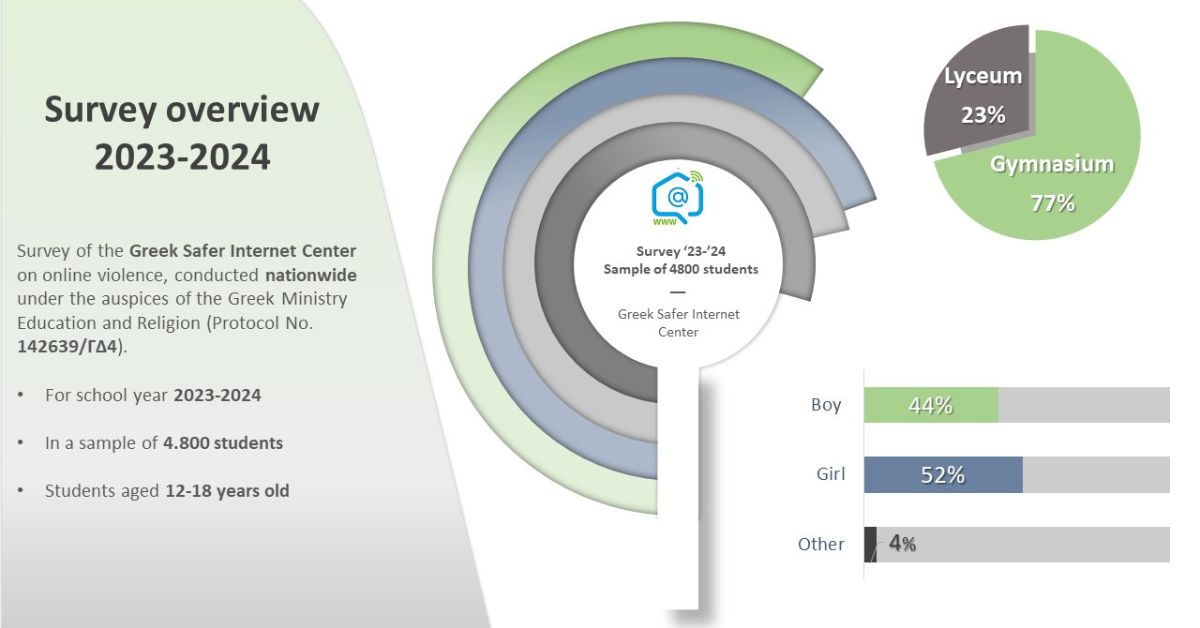Article
Hotline & Network Updates
Greek Safer Internet Centre Conducts 'Online Violence' Survey
The results of large-scale youth surveys play an important role in addressing the challenges of children and youth online safety, as they provide valuable evidence to help stakeholders create effective informative and awareness campaigns. Within this framework, Greek Safer Internet Center and the Greek hotline diligently administer surveys in schools using online questionnaires, a process endorsed by the Greek Ministry of Education, Religion, and Sports.
The survey "Online Violence" was conducted nationwide in Greece under the approval of the Ministry of Education, Religion and Sports during the period November-March 2023-2024. A total of 4,800 students aged 12-18 years old participated through an online questionnaire, completed within a timetable. 52% of the adolescents who responded were female and 48% were male.
One of the most important findings from the survey analysis is that almost half of adolescents have been exposed to online violence as a bystander and 13% of adolescents have experienced online violence. 43% of adolescents who selected "other" as their gender identity, report to have experienced online violence which highlights the increased vulnerability that children and adolescents of non-conventional gender expression encounter online.
Other important findings are:
- 44% of teenagers have witnessed gender-based harassment or abuse incidents online and 11% have experienced gender-based harassment or abuse.
- 26% of teenagers report that they have witnessed cyberbullying and 15% that they have suffered cyberbullying themselves.
- 24% of teenagers reported that someone shared their personal photos/videos without their consent and 11% felt pressured or coerced to share their personal/video photos online.
- Girls seem to experience gender-based abuse or harassment more often (13%) than boys (8%). For the Other sex the percentage is 37%.
- More girls than boys have witnessed gender-based abuse or harassment. Of those adolescents who belong to the other sex, 60% of them have witnessed such an incident.
Among adolescents who indicated "other" as their gender, 43% reported having been bullied online, 51% have witnessed online bullying, 69% have experienced hate speech and 68% have witnessed hate speech online. It is also indicative of the fact that 38% of teenagers do not know how to report incidents of online violence on platforms. As the survey shows, teens are not familiar with basic forms of violence such as gender-based violence or hate speech which acts as a barrier to recognising these forms of violence when they encounter them. More specifically, 69% either do not know at all or are unsure what gender-based online violence is, while 80% say they do not know what online hate speech is.
This research highlights the need for further awareness among adolescents on how to react appropriately when they experience or encounter violence online. An impressive 83% of teenagers think that online violence is a big problem for minors and 44% do not feel safe using the internet. Teens seem to feel less safe on social network platforms and live streaming platforms (46%), followed by online gaming platforms, chat rooms (27%) and instant messaging environments (26%).
Read more and access the full survey results here.
